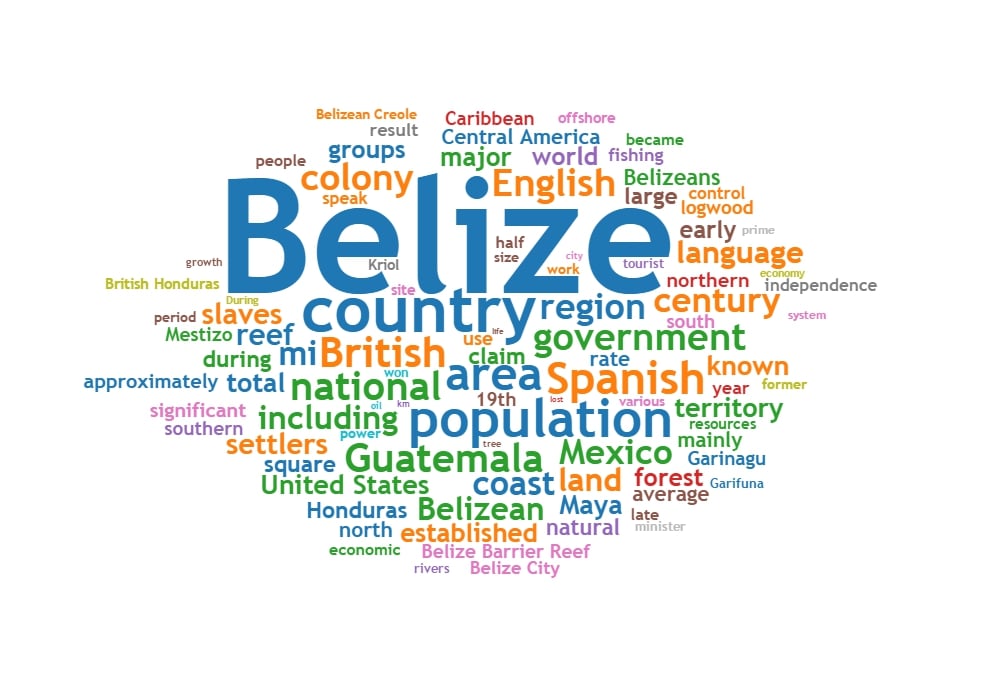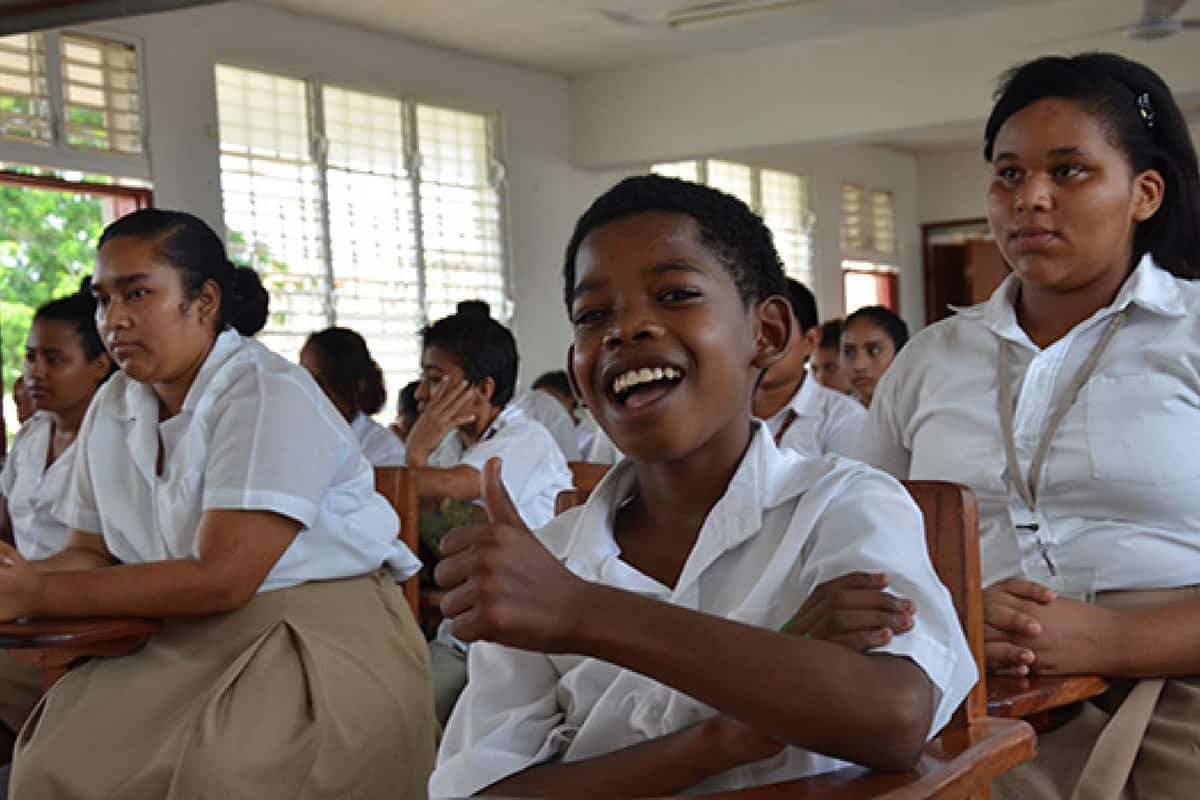Language spoken in belize – Languages spoken in Belize weave a vibrant tapestry of linguistic diversity, reflecting the nation’s rich cultural heritage and its dynamic relationship with neighboring countries. From the official language of English to the vibrant Belizean Creole, the presence of Spanish, Mayan languages, and other tongues creates a fascinating linguistic landscape that shapes Belizean identity and society.
English, the legacy of British colonialism, serves as the official language of Belize, playing a dominant role in education, government, and business. However, Belizean Creole, a unique fusion of English, Spanish, and African languages, is widely spoken and holds a special place in Belizean culture, serving as a symbol of national identity.
Official Language

The official language of Belize is English. It was established as the official language during the British colonial period, which lasted from the 17th century until Belize gained independence in 1981.
After gaining independence, English remained the official language due to its widespread use in government, education, and commerce. It is the primary language of instruction in schools and universities, and it is used in all official government communications.
Role of English in Belizean Society and Education, Language spoken in belize
English plays a vital role in Belizean society. It is the language of government, business, and education. It is also the language of the media, both print and broadcast. As a result, English is essential for full participation in Belizean society.
In education, English is the medium of instruction from primary school through university. This means that all students in Belize must learn English in order to succeed in school.
Creole Language
Belizean Creole is a vibrant and dynamic language that plays a significant role in the cultural and social fabric of Belize. It has a fascinating history and unique characteristics that set it apart from other Creole languages.
Development and Evolution of Belizean Creole
Belizean Creole emerged as a result of the interaction between British settlers, enslaved Africans, and the indigenous Maya population. It developed as a lingua franca, facilitating communication among people from diverse backgrounds. Over time, Belizean Creole has evolved, incorporating elements from various languages, including English, Spanish, and African languages.
Unique Features and Characteristics of Belizean Creole
- Lexicon:Belizean Creole has a distinct vocabulary that includes words and phrases borrowed from English, Spanish, and African languages.
- Grammar:The grammar of Belizean Creole differs from standard English in several ways, including the use of double negatives, the absence of the verb “to be” in certain contexts, and the use of the “da” construction.
- Phonology:Belizean Creole has a unique sound system that includes features such as vowel nasalization and the use of glottal stops.
Social and Cultural Significance of Belizean Creole
Belizean Creole is not only a language but also a symbol of Belizean identity. It is widely used in everyday communication, music, and literature. Creole speakers take pride in their language, and it serves as a unifying force within Belizean society.
Spanish Language
Spanish holds a significant presence in Belize, particularly in the northern and western regions bordering Mexico and Guatemala. Its usage stems from historical and cultural influences, shaping Belize’s linguistic landscape.
Historically, Belize was part of the Spanish Empire, and Spanish influence remains evident in place names, cultural practices, and the presence of Spanish-speaking communities. Additionally, proximity to Spanish-speaking neighbors has fostered cross-border interactions and language exchange.
Role in Belizean Society
Spanish plays a crucial role in Belizean society, especially in border regions. It facilitates communication and fosters cultural exchange between Belize and its neighbors. In these areas, Spanish is commonly used in commerce, education, and social interactions.
- Border Trade:Spanish is essential for cross-border trade and economic activities, enabling seamless communication between Belizean and neighboring businesses.
- Education:Spanish is taught as a second language in Belizean schools, recognizing its importance in regional communication and cultural understanding.
- Tourism:Belize’s tourism industry benefits from the presence of Spanish-speaking visitors, particularly from Mexico and Central America.
Mayan Languages: Language Spoken In Belize
Mayan languages are a group of indigenous languages spoken by the Maya people of Mesoamerica, including Belize. These languages are part of the Mayan language family and have a rich history and cultural significance in the region.
The Mayan languages spoken in Belize include Yucatec Maya, Mopan Maya, and Kekchi Maya. Yucatec Maya is the most widely spoken Mayan language in Belize, with over 70,000 speakers. Mopan Maya is spoken by approximately 10,000 people, while Kekchi Maya is spoken by around 5,000 people.
Mayan languages have played a vital role in the history and culture of Belize. They have been used for centuries to communicate, pass down traditions, and express the unique worldview of the Maya people. Mayan languages continue to be an important part of Maya identity and are used in various aspects of daily life, including education, religion, and community events.
Efforts to Preserve and Revitalize Mayan Languages
In recent years, there have been growing efforts to preserve and revitalize Mayan languages in Belize. These efforts include the development of educational programs, the creation of language materials, and the promotion of Mayan languages in the media. The goal of these efforts is to ensure that Mayan languages continue to be spoken and used by future generations.
The preservation and revitalization of Mayan languages is important for several reasons. First, it helps to maintain the cultural heritage of the Maya people. Second, it supports the development of bilingual and multilingual communities, which can have positive economic and social benefits.
Third, it contributes to the diversity of languages and cultures in the world.
Other Languages
In addition to the official languages, Creole, Spanish, and Mayan, there are other languages spoken in Belize, including Garifuna and German.
These languages have their own unique historical and cultural contexts and play a role in Belizean society.
Garifuna
Garifuna is an Arawakan language spoken by the Garifuna people, who are descendants of Caribs and West Africans who were exiled from Saint Vincent in the 18th century.
Garifuna is spoken by about 10% of the population of Belize and is an important part of Garifuna culture. It is used in traditional ceremonies, music, and dance.
German
German is spoken by a small community of Mennonites who live in Belize. The Mennonites are a religious group that originated in Europe and migrated to Belize in the 1950s.
German is used in Mennonite communities for religious services, education, and everyday communication. It is also used in some businesses and government offices in areas with a high concentration of Mennonites.
Language Policy and Education

The Belizean government’s language policy aims to preserve and promote the country’s diverse linguistic heritage while fostering national unity and communication.
The policy recognizes English as the official language and encourages the use of Belizean Creole, Spanish, and Mayan languages in education, government, and public life.
Challenges in Implementing the Language Policy in Education
- Limited resources for teaching and learning non-English languages.
- Lack of qualified teachers in indigenous languages.
- Socioeconomic factors that may hinder access to education in non-English languages.
Opportunities in Implementing the Language Policy in Education
- Preservation and revitalization of indigenous languages.
- Enhanced cultural identity and self-esteem among language speakers.
- Improved academic achievement and cognitive development for students who are taught in their native language.
Initiatives to Promote Language Learning and Preservation
- Inclusion of non-English languages in the national curriculum.
- Establishment of language immersion programs.
- Support for community-based language initiatives.
- Development of teaching materials and resources in non-English languages.
Language and Culture
Language plays a vital role in shaping and reflecting the unique cultural identity of Belize. It serves as a medium for transmitting cultural values, beliefs, and traditions, contributing to a sense of shared heritage and community.
Belize’s diverse linguistic landscape reflects the country’s rich cultural history. The official language, English, serves as a bridge between different ethnic groups and facilitates communication with the international community. Creole, a vibrant and expressive language, embodies the African heritage of Belizeans and is widely spoken in everyday life.
Spanish Language
Spanish, spoken by a significant portion of the population, is a legacy of Belize’s colonial past. It serves as a bridge to neighboring Spanish-speaking countries, fostering cultural exchange and economic cooperation.
Mayan Languages
The Mayan languages, spoken by indigenous communities, are a testament to Belize’s ancient heritage. They carry cultural significance and contribute to the preservation of traditional practices and knowledge systems.
Other Languages
Belize’s multilingual environment also includes German, Chinese, and Arabic, reflecting the diverse origins of its people. These languages enrich the cultural tapestry of Belize and facilitate communication within specific communities.
Language Policy and Education
The Belizean government recognizes the importance of language in preserving cultural heritage. Educational policies promote multilingualism and encourage the teaching of local languages in schools, ensuring that future generations can connect with their cultural roots.
Language and Tourism

Language plays a pivotal role in Belize’s tourism industry, as it enables effective communication between tourists and tourism professionals. Visitors from diverse linguistic backgrounds seek authentic experiences, and language proficiency facilitates meaningful interactions that enhance their overall travel experience.
Importance of Language Proficiency for Tourism Professionals
Tourism professionals, including tour guides, hotel staff, and restaurant servers, benefit greatly from language proficiency. It allows them to provide tailored services that cater to the specific needs of tourists. By understanding the nuances of different languages, they can establish rapport, build trust, and create a positive and memorable experience for visitors.
Challenges and Opportunities in Providing Multilingual Tourism Services
Providing multilingual tourism services presents both challenges and opportunities. One challenge lies in the need for trained and qualified multilingual professionals. Additionally, the cost of providing interpretation and translation services can be a significant factor. However, multilingual services offer numerous opportunities to attract a wider range of tourists, increase customer satisfaction, and enhance the overall competitiveness of the tourism industry in Belize.
Language and Technology
The advent of technology has significantly influenced language use in Belize. With increased access to the internet and social media, Belizeans have adopted new ways of communicating and interacting with language.
One notable impact of technology is the increased use of Belizean Creole and Spanish in online communication. Social media platforms like Facebook and Twitter have become popular spaces for Belizeans to express themselves in their native languages. This has led to the creation of vibrant online communities where Belizeans can share news, stories, and opinions in Creole and Spanish.
Language-related Apps and Resources
In addition to social media, there are several language-related apps and resources available in Belize. These include:
- Belizean Creole Dictionary: This app provides a comprehensive dictionary of Belizean Creole words and phrases, along with audio pronunciations.
- Maya Language App: This app offers lessons and resources for learning and preserving the Mayan languages spoken in Belize.
- Spanish Language Learning Apps: Several apps are available to help Belizeans learn and improve their Spanish language skills.
Closing Notes
The linguistic tapestry of Belize is a testament to the nation’s rich history and cultural diversity. Each language spoken in Belize contributes to the nation’s unique identity and plays a vital role in shaping the Belizean experience. As the country continues to evolve, its linguistic landscape will undoubtedly continue to reflect the dynamic nature of Belizean society.
FAQ Corner
What is the official language of Belize?
English is the official language of Belize.
What is Belizean Creole?
Belizean Creole is a unique fusion of English, Spanish, and African languages that is widely spoken in Belize.
What other languages are spoken in Belize?
Spanish, Mayan languages, Garifuna, and German are among the other languages spoken in Belize.